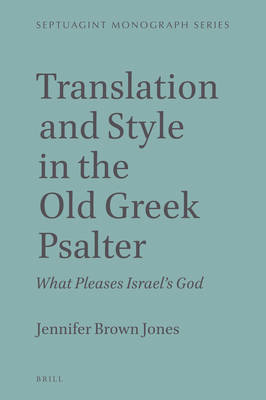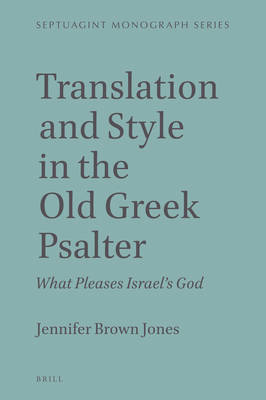
- Afhalen na 1 uur in een winkel met voorraad
- Gratis thuislevering in België vanaf € 30
- Ruim aanbod met 7 miljoen producten
- Afhalen na 1 uur in een winkel met voorraad
- Gratis thuislevering in België vanaf € 30
- Ruim aanbod met 7 miljoen producten
Zoeken
€ 238,45
+ 476 punten
Omschrijving
While some describe the Greek Psalter as a "slavish" or "interlinear" translation with "dreadfully poor poetry," how would its original audience have described it? Positioning the translation within the developing corpus of Jewish-Greek literature, Jones analyzes the Psalter's style based on the textual models and literary strategies available to its translator. She demonstrates that the translator both respects the integrity of his source and displays a sensitivity to his translation's performative aspects. By adopting recognizable and acceptable Jewish-Greek literary conventions, the translator ultimately creates a text that can function independently and be read aloud or performed in the Jewish-Greek community.
Specificaties
Betrokkenen
- Auteur(s):
- Uitgeverij:
Inhoud
- Aantal bladzijden:
- 304
- Taal:
- Engels
- Reeks:
Eigenschappen
- Productcode (EAN):
- 9789004471252
- Verschijningsdatum:
- 11/11/2021
- Uitvoering:
- Hardcover
- Formaat:
- Genaaid
- Afmetingen:
- 155 mm x 235 mm
- Gewicht:
- 629 g

Alleen bij Standaard Boekhandel
+ 476 punten op je klantenkaart van Standaard Boekhandel
Beoordelingen
We publiceren alleen reviews die voldoen aan de voorwaarden voor reviews. Bekijk onze voorwaarden voor reviews.








